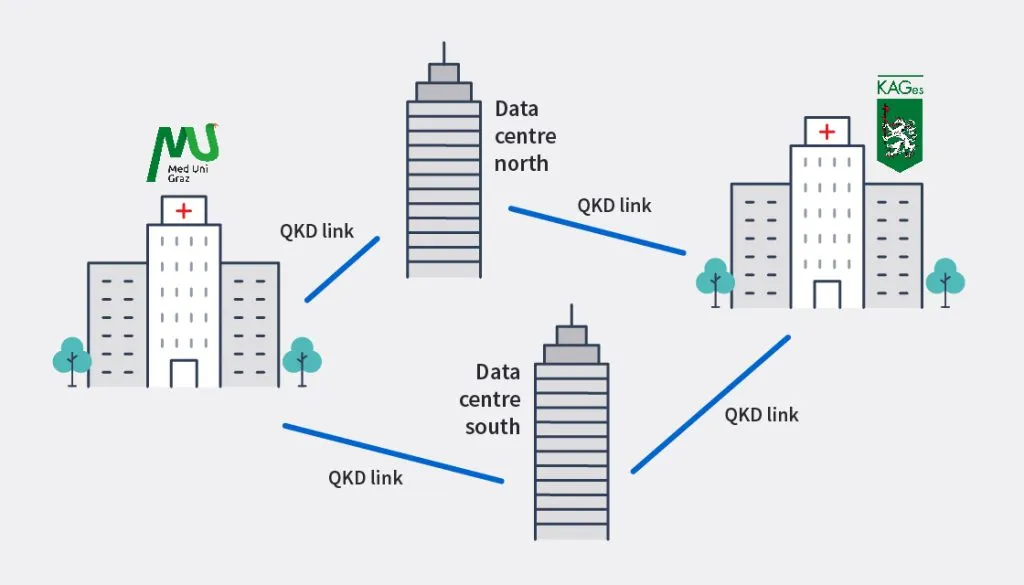In a groundbreaking development poised to revolutionize data security in the medical and energy sectors, researchers have successfully demonstrated the practical applications of quantum key distribution (QKD) networks and quantum secure cloud technologies. This innovation, spearheaded by Yoshimichi Tanizawa of Toshiba Corporation in Kawasaki, Japan, and his team, could redefine how sensitive data, such as genome sequences, is protected and transmitted.
The study, published in the IEEE Transactions on Quantum Engineering (which translates to the IEEE Journal of Quantum Engineering), focuses on the integration of QKD with trusted node-based key relay techniques. This combination overcomes the limitations of QKD, enabling secure key distribution between any two parties within a network. By incorporating secret-sharing technology, the team has also created a quantum secure cloud, ensuring both secure data storage and communication.
The proof-of-concept (PoC) system was developed and tested at Tohoku University and Toshiba sites, specifically addressing the “cancer clinical sequencing” use case. The team evaluated three practical scenarios: real-time transmission of genome analysis data, an online video conference for medical experts, and distributed backup of genome analysis data. To support these scenarios, they developed new functions, including a data monitoring and encryption/decryption pipeline, a key management system for large-scale and low-latency data communication, and a preemptive key data reading function for high-speed data transmission and distributed data backup.
“The evaluation results reveal that QKD network and quantum secure cloud technologies can be applied to cancer clinical sequencing as a use case of the genome medicine domain,” said Tanizawa. This breakthrough not only enhances data security in medical applications but also has significant implications for the energy sector, where protecting sensitive information is paramount.
The integration of QKD networks and quantum secure cloud technologies offers a robust solution for securing large-scale data transmission and storage. As the energy sector increasingly relies on digital systems and data analytics, the need for advanced security measures becomes critical. This research paves the way for future developments in secure network systems, ensuring that sensitive data remains protected against evolving cyber threats.
The successful demonstration of these technologies in the medical field highlights their potential for broader applications. As Yoshimichi Tanizawa and his team continue to refine and expand these systems, the energy sector can look forward to adopting similar solutions to safeguard their critical infrastructure and data. This research not only advances the field of quantum engineering but also underscores the importance of interdisciplinary collaboration in driving technological innovation.

